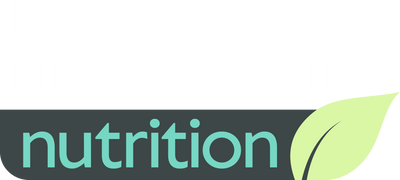All About Collagen: Types, Functions, and Health Benefits
November 29, 2024
Collagen is often referred to as the “building block” of the body, and for good reason. It's the most abundant protein in our bodies, making up approximately 30% of our total protein content. From keeping your skin supple to supporting strong bones and muscles, collagen plays a vital role in maintaining overall health and wellness.
What is Collagen?
Collagen is a structural protein primarily found in your skin, muscles, bones, tendons, ligaments, and connective tissues. It’s also present in your organs, blood vessels, and even the lining of your digestive tract. Collagen is made up of amino acids, particularly proline, glycine, and hydroxyproline, which form a triple-helix structure to create protein fibrils.
For your body to produce collagen naturally, it also requires sufficient amounts of vitamin C, zinc, copper, and manganese.
What Does Collagen Do?
Collagen serves as a critical building block for various parts of your body. Its primary functions include:
- Providing structure, strength, and elasticity to your skin.
- Supporting your connective tissues, such as tendons and ligaments.
- Assisting in the formation of fibroblasts, which aid in cell regeneration.
- Protecting organs with a sturdy structural covering.
- Supporting blood clotting to promote wound healing.
Types of Collagen
With 28 different types identified, collagen takes on various roles depending on where it’s found in the body. Here are the five main types and their functions:
- Type I: This is the most abundant type, making up nearly 90% of your body’s collagen. It’s responsible for the structure of your skin, bones, tendons, and ligaments.
- Type II: Found in cartilage, it’s essential for joint health and mobility.
- Type III: Supports muscles, arteries, and internal organs.
- Type IV: Located in the layers of your skin, it helps with filtration processes.
- Type V: A crucial component of your eyes’ cornea, certain layers of skin, hair, and the placenta.
How Collagen Changes with Age
Collagen production naturally declines as you age. Your body produces less collagen, and the quality of what is produced may diminish. Common signs of reduced collagen include:
- Wrinkled or sagging skin. Vibrance Collagen from Health Nut can assist.
- Joint discomfort or osteoarthritis. Restore Collagen from Health Nut can assist.
- Stiffer tendons and ligaments. Restore Collagen from Health Nut can assist.
- Muscle loss or weakness. Active Collagen from Health Nut can assist.
- Digestive issues due to a weaker intestinal lining.
Women, in particular, experience a sharp decrease in collagen production after menopause, and production slows significantly for everyone after age 60.
Supporting Collagen Production Naturally
Maintaining a balanced diet is one of the most effective ways to support your body’s natural collagen production. Incorporate these essential nutrients and food sources into your meals:
- Vitamin C: Found in citrus fruits, strawberries, bell peppers, broccoli, and Brussels sprouts.
- Proline: Found in mushrooms, asparagus, peanuts, egg whites, and meat.
- Glycine: Present in red meats, poultry, pork, peanuts, and granola.
- Zinc: Found in oysters, red meat, beans, leafy greens, and dairy products.
- Copper: Found in shellfish, nuts, seeds, leafy greens, and dark chocolate.
Benefits of Collagen for Health and Wellness
Adding collagen-boosting foods to your diet can have noticeable effects on your appearance and overall wellness. Supporting collagen production may help:
- Improve skin elasticity and hydration, giving you a youthful complexion.
- Strengthen joints to support mobility and reduce pain associated with cartilage wear.
- Fortify muscles, tendons, and ligaments to prevent injuries.
- Enhance the health of your gut lining and support digestion.
Lifestyle Habits That Protect Collagen
To maintain your collagen levels and slow its decline, avoid behaviors that damage or deplete it, such as:
- Smoking: It lowers collagen production and leads to wrinkles and slower healing.
- Excessive Sugar and Refined Carbs: High sugar intake damages proteins and weakens collagen.
- UV Light Exposure: Sunlight breaks down collagen, causing wrinkles and premature aging.
Protective habits like daily sunscreen use, a balanced diet, and avoiding tobacco can help safeguard your collagen and overall health.
Collagen Supplements – Do They Work?
Collagen supplements, available as powders or capsules, are often marketed as a solution for better skin, stronger joints, and improved overall health. These supplements usually contain collagen peptides (hydrolyzed collagen), which are broken down into smaller amino acids for easier absorption in the body.
Current research shows potential benefits for skin hydration, elasticity, and joint health. However, it’s important to note:
- The FDA does not rigorously regulate supplements as it does medications.
- Scientific evidence is often limited, and many studies are funded by supplement manufacturers.
- Your body distributes ingested collagen where it’s needed most, which may not always align with your desired outcome.
The Bottom Line
Collagen is essential to the structure and function of your body, playing a key role in skin health, joint support, and beyond. While collagen supplements can be a helpful addition, supporting your body's natural collagen production through a nutrient-rich diet and healthy lifestyle habits will always be the most effective and sustainable approach.
At Health Nutrition, we aim to provide you with the knowledge and tools you need to make informed decisions about your wellness. Prioritize a diet rich in collagen-supporting nutrients, protect your skin daily, and consider supplementing when necessary to support your health goals.
Don't just take our word for it, see what the research says here!
Also in Health
- Collagen Dietary Supplements
- Collagen for Healthy Skin, Hair and Nails
- Collagen for Athletes
- Collagen for Aching Joints
- Marine Collagen Powder
- Vegan Collagen Capsules for Healthy Skin
- Vegan Collagen Tablets for Joint Health
- Vegan Liquid Collagen Booster
- Vegan Collagen Orgono Smoothie Silica Powder
- Refund policy
- Stockists
- Terms of Service
Sign up to get the latest on sales, new releases and more…





